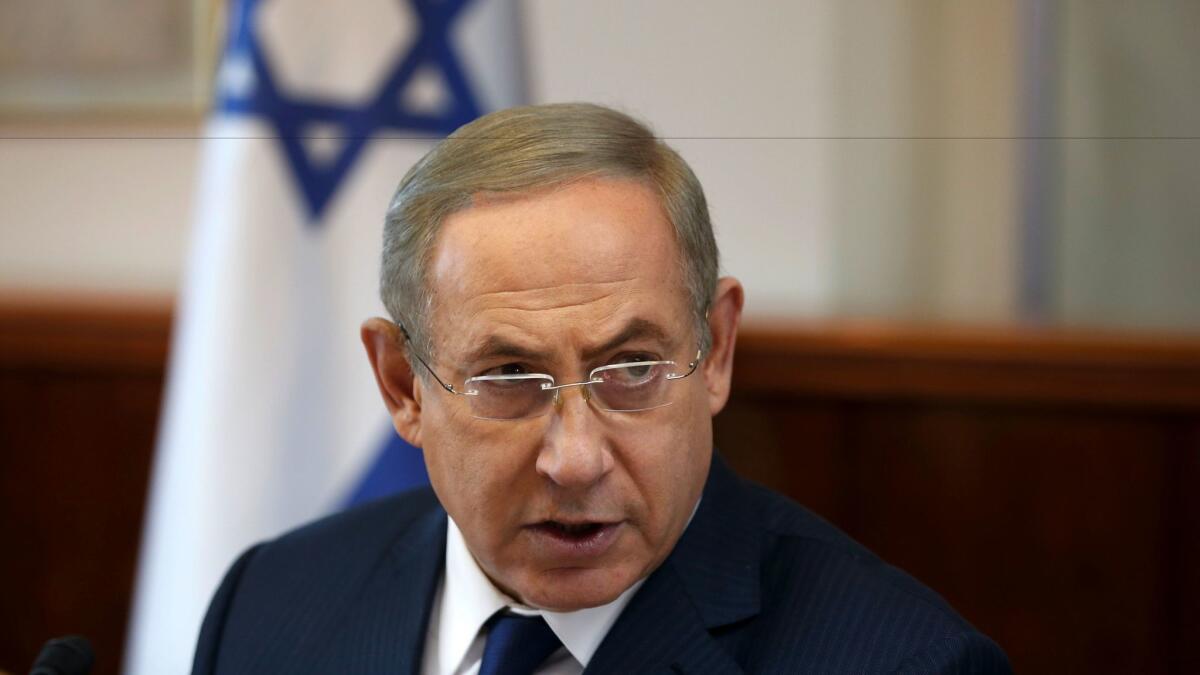Israel moves forward with legislation that would ban mosques from using loudspeakers

Israeli Prime Minister Benjamin Netanyahu lent the measure his support for the first time Sunday.
An Israeli Cabinet panel voted Sunday to endorse a piece of legislation that would silence mosque loudspeakers that broadcast the call to prayer, kicking up charges of discrimination from the country’s Arab minority.
The vote by the Cabinet panel on Sunday means the legislation will be introduced in parliament as a bill backed by the entire coalition – improving its chances for final passage.
Dubbed the “muezzin bill” by the local press, the proposal bars any place of worship – including churches and synagogues — from using loudspeakers. Politicians and legal experts say its aim is to target mosques, especially in mixed Arab-Jewish cities where some Jewish Israelis complain about predawn calls to prayer from Muslim houses of worship. Arab Israelis make up about 20% of the country’s population; 83% of that minority is Muslim, according to Israel’s Central Bureau of Statistics.
Legislators in Israel’s right-wing government have unsuccessfully tried to advance the legislation in previous years. On Sunday, Prime Minister Benjamin Netanyahu lent it his support for the first time.
“Israel is a country that respects freedom of worship for all religions,’’ Netanyahu told his Cabinet on Sunday several hours before the law was approved. “Israel is also obligated to protect those who are suffering from excessive noise of loudspeakers. This is what is done in Europe and this is what is done in some places in the Muslim world.’’
Other countries have also seen legal challenges to the call to prayer. In India, the high volume level from mosque loudspeakers prompted a court petition to force imams to lower the sound; in Egypt, the government has tried to force Cairo mosques to transmit a standardized muezzin call provided by the central government, in response to complaints about the cacophony of calls from various mosques.
Motti Yogev, a member of the nationalist religious Jewish Home party who co-sponsored the bill, told Israel Radio that Muslim prayer authorities should send text messages or use mobile apps as a substitute. He also argued that the use of loudspeakers disturbed Muslims as well Jews.
But leaders of Israel’s Arab minority see the bill as an effort to infringe on their rights to freedom of worship and vowed the refuse to cooperate with the law if it is passed.
“This is a racist and outrageous law. The muezzin exists since before the establishment state. It’s part of our faith and religion. Why are they suddenly today complaining about the noise?’’ said Sheikh Kamel Rayan, the head of the southern branch of the Islamic Movement in Israel, who predicted that Islamic officials and clerics wouldn’t comply with the law.
“We have no problem to talk about this through dialogue and negotiations, but not through a coercive law.’’
Ayman Odeh, the leader of the Joint List party, which represents Israel’s Arab minority, called the bill an example of “religious persecution” in an interview with the Israeli website Walla News. “The government is promoting militancy,” he said.
In a legal opinion submitted to the government opposing the legislation, the Israel Democracy Institute, a nonpartisan think tank, argued that the law is also meant to stifle nationalist political messages from mosque loudspeakers. “In addition to injuring freedom of religion, the proposal is liable to stir up bitterness among the Muslim populace,’’ the opinion said.
Separately, the same Cabinet panel also approved a controversial proposal that would allow the government to retroactively legalize unauthorized Israeli settlement outposts.
The bill was backed by pro-settler parties in the coalition, who are seeking to find a way to shield unauthorized outposts from recent Israeli high court rulings ordering the government to raze Israeli buildings built illegally on land owned by Palestinians.
The settlement bill was opposed by the Israeli attorney general, who warned that it would be difficult to defend against a court challenge. The move is also likely to rankle officials in the outgoing U.S. administration, who are concerned it will expand the footprint of Israeli settlements in a way that will make it impossible to create a contiguous Palestinian state in the West Bank.
More to Read
Sign up for Essential California
The most important California stories and recommendations in your inbox every morning.
You may occasionally receive promotional content from the Los Angeles Times.










